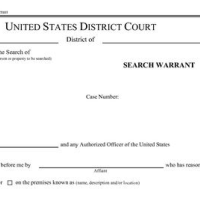Federal Judges Clash with Law Enforcement over Cellphone and Email Data Requests

A small but expanding group of federal judges has thwarted efforts by law enforcement to have carte blanche to pry into the personal communications of suspects.
These judges have made it clear that protecting constitutional rights is more important in some cases than helping police conduct broad searches into cell phone and email data.
The movement began in 2005 with Judge Stephen W. Smith in Houston, who rejected a government request for real-time access to cell phone GPS information. In his ruling, Smith equated the attempt to putting a tracking device on an individual, which requires a warrant. But the government did not request such a court order.
“We understand law enforcement has a difficult job, and we don’t want to blow an investigation or tip off a suspect,” Smith told The Washington Post. But, he added, judges have “the special responsibility to safeguard the Fourth Amendment. . . . We are the ultimate backstop.” The Fourth Amendment guarantees a person’s right be protected against unreasonable searches and seizures.
A judge who shares Smith’s viewpoint is D.C. Magistrate Judge John M. Facciola, who prevented the government from obtaining access to the iPhone of a Georgetown University student accused of making ricin in his dorm room and limited access to the Facebook page of Navy Yard shooter Aaron Alexis.
Facciola has characterized some law enforcement efforts to access entire contents of email accounts as “repugnant” to the U.S. Constitution. He has told police to have tighter focus in their searches and to delete or return data not connected to the search.
Some civil libertarians share Facciola’s concerns. “We’re hearing from an increasing number of magistrates that they’re uncomfortable with the requests they’re getting from the FBI and the Justice Department for surveillance,” said Cindy Cohn, legal director of the Electronic Frontier Foundation.
The Justice Department is fighting back. It claims that Facciola’s approach to searching e-mail differs from rulings of other courts and that it’s impractical to have a company with access to the data searching for evidence, rather than turning it all over to law enforcement.
-Noel Brinkerhoff, Steve Straehley
To Learn More:
Low-Level Federal Judges Balking at Law Enforcement Requests for Electronic Evidence (by Ann E. Marimow and Craig Timberg, Washington Post)
Washington State Supreme Court Rules 5-4 that Text Messages are Protected from Warrantless Searches (by Steve Straehley, AllGov)
Federal Judge Rules that Border Patrol Does Not Need Reasonable Suspicion to Confiscate Laptops and Phones (by Noel Brinkerhoff, AllGov)
Federal Court Limits Cell Phone and Laptop Searches Near Border (by Matt Bewig, AllGov)
- Top Stories
- Unusual News
- Where is the Money Going?
- Controversies
- U.S. and the World
- Appointments and Resignations
- Latest News
- Trump Renames National Football League National Trump League
- Trump to Stop Deportations If…
- Trump Denounces World Series
- What If China Invaded the United States?
- Donald Trump Has a Mental Health Problem and It Has a Name






Comments